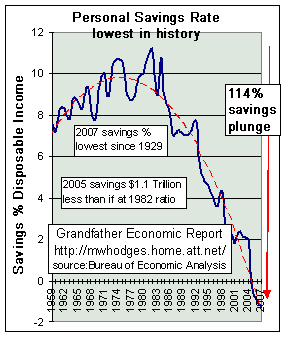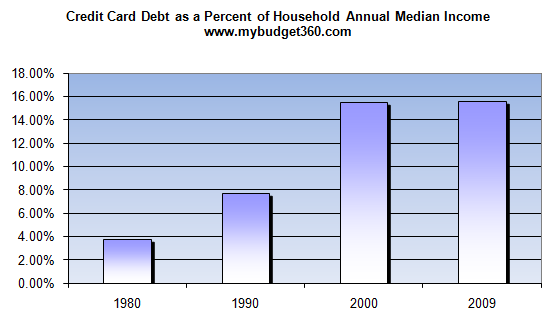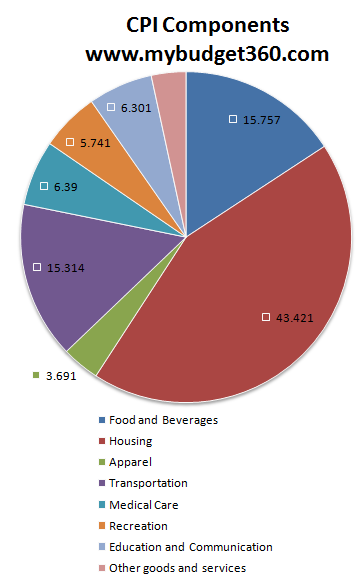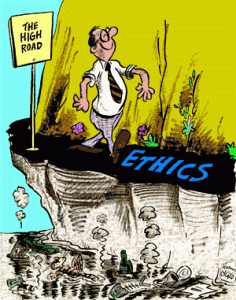I used to work at University College, London, getting by as a science historian.
Having written papers on various suitably obscure subjects - from Newton’s lunar theory to the discovery of Neptune - three years ago I made what in retrospect looks like a rather large mistake. I began to take an interest in the published chemical evidence relating to the ‘gas chambers’ at Auschwitz/ Birkenau.
Maybe it was foolish to imagine that hard scientific data was of relevance in this case. It strangely turned out that I was engaging with a predominantly religious issue, and I simply became damned as a
heretic.
There is no disagreement that cyanide gas chambers existed at many WW2 concentration camps. These were delousing rooms built to kill the bugs that threatened the health of the camp inmates. They were designed to keep the prisoners healthy so that they could carry out their work effectively. Their purpose was hygienic.
We can nowadays agree that many tons of cyanide (in granular form as the insecticide Zyklon) was used during the WW2 for hygienic delousing technology. Before DDT was invented around 1945, Zyklon was the normal delousing method. Special gas chambers made by a firm called Degesch, 10m3 in volume, were installed in all the German labour-camps in 1942, the year when typhus hit the camps. That epidemic is spread by bugs, so all clothing and bedding had to go repeatedly into the delousing chambers. It was a procedure designed to be safe for regular use.
These chambers still exist at
four WW2 labour camp ruins, Madjanek, Dachau, Auschwitz and Birkenau, and can be easily identified because their walls are mostly turquoise blue. There is iron in the walls of the old chambers at Auschwitz and Birkenau and this combined
permanently with the cyanide then used, the brick walls being very porous to the cyanide gas. These walls are blue on the inside
and on the outside, showing that the cyanide soaked right through them. The blue in the walls is ferrocyanide – just like the colour in a tube of turquoise oil paint.
In contrast to these real gas chambers, the walls of the alleged human gas chambers have no such blue colouring. This simple and obvious fact was one of the first causes of skepticism for some of those who visited the camps.
My contribution to ‘Holocaust Studies’ related to this issue: I spent a while integrating the Leuchter and Rudolf reports – the two big chemical surveys of the walls - and ascertaining what they found to be the
control-background levels of residual cyanide. These are levels in samples where no-one is suggesting that mass cyanide gassing took place. Putting together the combined measurable data of these two chemical surveys (42 samples) I got the following three groups:
Delousing chambers 5000 ppm* (15 samples) *parts per million
Washrooms, Kitchens etc (‘Controls’) 2 ppm (11 samples)
Alleged human gas chambers 3 ppm (16 samples)
The ‘official’ explanation given for these figures is that ‘bugs are harder to kill than humans.’ No wonder the cyanide levels in the delousing chambers are higher, they had to kill all those little bugs... well, have a look at those figures. There is no significant difference between the control, background levels of cyanide (2 ppm) and those for the alleged human gas chambers (3ppm). Absolutely none. The fact that there are measurable levels for cyanide in ordinary rooms at Auschwitz is probably because of occasional fumigation to kill bugs living in cracks and crevices in the walls etc.
Whereas there is a two-thousandfold difference between the ‘control’ measurements and the delousing chambers – where the Zyklon was indisputably used hour after hour, day after day. Here the cyanide content, at an average value of around 5000 ppm, is about half of one percent of the samples taken.
The modern books that continue to roll off the presses about Auschwitz and ‘The Holocaust’ advocate a view that some Zyklon went to the delousing chambers, whereas some was ‘diverted’ for ghastly human use. It is important to note here that in 1946 at Nuremberg, no such dual use was posited. All knowledge of the normal, hygienic function was blotted out, and it was
assumed that any can of Zyklon was for the ‘human gassing.’ Operators of the delousing chambers did not get to testify.
Over the years there has appeared a growing difference of opinion on the ‘human gas chambers’ issue... In fact it’s almost hard to believe that such a vast, dizzying difference of opinion over a single issue can exist in the world today. It remains that all decent citizens believe that millions of people, mainly Jews, were gassed in huge, cyanide gas chambers, over 1942-45, as the ultimate industrialised mass killing in human history. On the other hand, there are a few down-and-out, ethically-damned loners who have the nerve to affirm that such mass human gas chambers have never existed on Planet Earth…..
Nowhere!
Never!
….and, apart from that, had they existed they would be, in practice, totally unworkable. But that’s another story.
Over the last few years I have noticed that one side of this argument proceeds by trying to debate the evidence while the other uses every time, without exception, name-calling, abuse and ethical damnation.
Understandably it is a subject which many people find unbearable to discuss.….but on even this ‘sacred’ ground the earth is moving. Since startling revelations about 9/11 have been exposed there are increasingly massed ranks of ordinary but shocked and awakened people, now terminally cynical about the capacity of the powerful to lie and deceive in the service of their own interests.
Today, I believe we should formulate the unbearable Big Questions as:
Were the deadly Nazi gas chambers of WW2 used to kill Jews…..or bugs?
Did they work to take lives……or save them?
Did they have people ..... or clothing, put into them?
(Warning: a ‘wrong’ answer here can land you in jail, in ten European nations.)
I’m intrigued by historical questions with a chemical twist to them. Admittedly this one lost me half of my friends, got me thrown out of my College, made me virtually unemployable, and closed the doors of publishers and public venues. However, I cannot regret publishing what I believe to be true about this profoundly important issue. I hold the view that, if the truth about such an important matter is to remain out of bounds and beyond debate, then there is really no point in getting out of bed in the morning.
The truth has to matter.
The truth about the ‘human gas chambers’ particularly matters because much of modern history (and modern calamities) is founded on it.
As a vision of ghastly horror it has become the Most Holy Mystery in this spiritually bankrupt culture of ours. It has a transcendental function in expressing Ultimate Evil. It even seems to be morphing into a new religion, which has replaced the suffering of Christ by the ‘suffering of The Jews.’ The word ‘Holocaust’ actually means a fiery sacrifice.
This has to be the original WMD hoax - but, more than that, the total absence of any physical or chemical evidence for it, is precisely what has lead to ‘the Holocaust’ taking on its present numinous, transcendental nature.
So, are we discussing science or religion? I say that a scientific, rational approach to the subject became possible for the first time in 2003, when two published, chemical investigations appeared in the English language, and were concordant. But, I noticed that my fellow countrymen behaved as if the issue was a theological question about which the expression of doubt was a most serious sin.
Personally I prefer living in the real world and that has to mean discerning the difference between what is real and illusory. It will be a Copernican Revolution when the truth on this issue becomes widely understood. The lid cannot be kept on such lies indefinitely. I’d say that Mother Nature played the trump card: slowly, after the war, the walls of those delousing chambers turned blue, as the ferrocyanide complex developed.
I believe that
no happy future can lie in store for humanity, so long as we continue to believe in this nightmare-hallucination. Belief in it is a badge of enslavement, it is the supreme sacred Myth of the New World Order.
Plato in his Republic said every civilisation needed a founding myth – but, he added, that myth did not have to be true. Karl Popper the philosopher of science was shocked by this and disagreed – it had to be true, he averred. I know who I want to believe. The consequences of founding society’s culture and relationships upon false narratives is provably disastrous. We get wars based on lies, global tyranny by bankers, debased, demoralised populations and now quite possibly World War Three.
ENDNOTE
There are five different levels of non-existence of the mass-human-cyanide- gas-chambers, which need to be known and understood by every educated citizen:
No trace of any 3rd Reich documentation has yet been found for any intention or plan of extermination of Jews. If you believe it all happened, you have to believe that the Nazis recorded nothing of their massive diabolical plan. Furthermore, that no single low or medium-level functionary who was caught up in the evil conspiracy committed a reflective or protesting word in writing to any family member or friend about their involvement in a process that must have been, at the very least, troubling.
No trace of any cyanide-gassed bodies have ever been found.
Present remains display nothing resembling a credible human gas chamber, not at any German WW2 labour-camp. Yes, there is the theatrical ‘gas chamber’ that thirty million have trooped through, built by Stalin in 1946. Compulsory school visits there still get their tingle of terror – but those escorting the youngsters are
guilty of not informing them, that wall samples from this building have failed to show any significant elevation in cyanide above normal, background levels.
Not one single death was recorded as being due to cyanide poisoning in any German labour-camp. Very detailed and extensive records exist at the Bad-Arolsen archive (in North Germany), and its manager recently disclosed this fact.
No photo exists from an ‘extermination camp’ of any huge pile of stripped-naked mixed-gender corpses (as would have been created by such industrialised mass-killing), nor is there any photo of anything resembling a human mass-gassing chamber.
Modern accounts of such ‘mechanised killings’ by cyanide originate from Rudolf Hoss, Kommandant of the Auschwitz camp, who gave the story at Nuremberg in 1946 -
after torture by a British army team for three days and three nights. His story had one or two thousand people marching into a washroom, or what looked like a washroom, then dying within twenty minutes. Re-tellings have to follow this story, because he’s the source! Thank you Fred Leuchter, and thank you Germar Rudolf. Only using their work can we drive a stake through the heart of this nightmare-horror.















